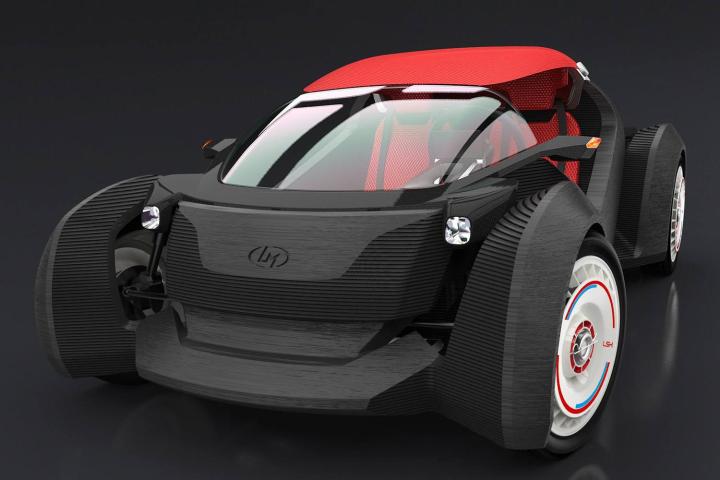
That’s probably also true of Local Motors and its continuing quest to prove the viability of 3D-printed cars.
The company known for crowdsourced design first 3D printed a car last fall at the International Manufacturing Technology show in Chicago, and now Local has done it again at the 2015 Detroit Auto Show.
The car it built in Detroit is an updated version of the Strati that debuted in Detroit, and it’s not just a publicity stunt. Local hopes to put the car on sale sometime later this year, pending certification by U.S. regulators.
The whole 3D-printing process takes about 44 hours, and obviously doesn’t require the massive machines of a typical automotive assembly plant. Local hopes to cut the printing time down to 24 hours.
The material used for the Strati is an ABS plastic reinforced with carbon fiber. The powertrain and other components are sourced from the Renault Twizy, a small electric vehicle sold in Europe.
Local says most of the Strati is 3D printed, including the entire body. The electric motor, battery pack, and running gear like suspension components, wheels, and brakes are manufactured conventionally, of course.
Local hopes to manufacture the Strati in a series of “microfactories” that it claims will be more sustainable than traditional manufacturing.
The company believes 3D printing will produce less waste and speed up delivery times. The relatively small footprint of the equipment could also allow Local to put its factories in urban areas, stimulating the economy without causing too much disruption.
Editors' Recommendations
- Los Angeles-based Czinger is 3D-printing a 1,232-hp hybrid hypercar
- Porsche using 3D printing technology to make custom-tailored seat cushions
- Horsepower and 3D-printing collide in the hottest Mini hatchback to date
- Volkswagen and HP want your next car to have 3D-printed parts
- Jaguar Land Rover is developing this amazing 3D head-up display


